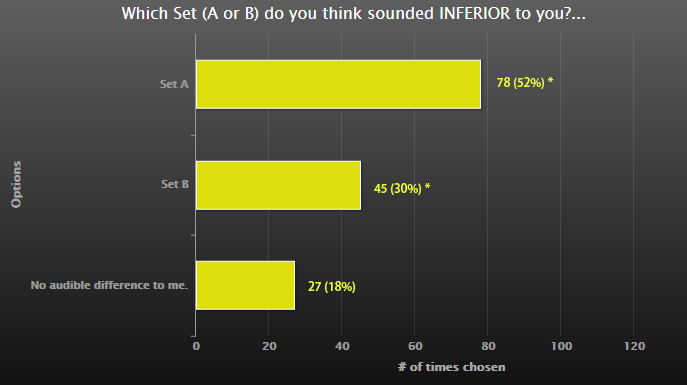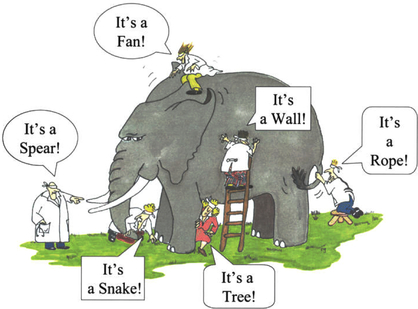Actually not quite. You introduced an additional variable: lossy compression. If you were to prove your original claim, you should have compared to a downsamples, noise-shaped dithered 16/44.1 version of the tracks without lossy compression added.I am actually a good example for this, haha.
To be perfectly honest, after performing countless ABX tests over a span of ~13 hours, I do believe that my original, untested observation, regarding the difference between lossless and compressed formats, may have been slightly exaggerated, yet not completely unfounded.
The results were pretty much consistent with that.
But great progress has been made: from "Absolutely, unequivocally incredible." to (to paraphrase) "sometimes I can hear a difference if I try really hard". To me, that sounds like it was much more than just a slight exaggeration



